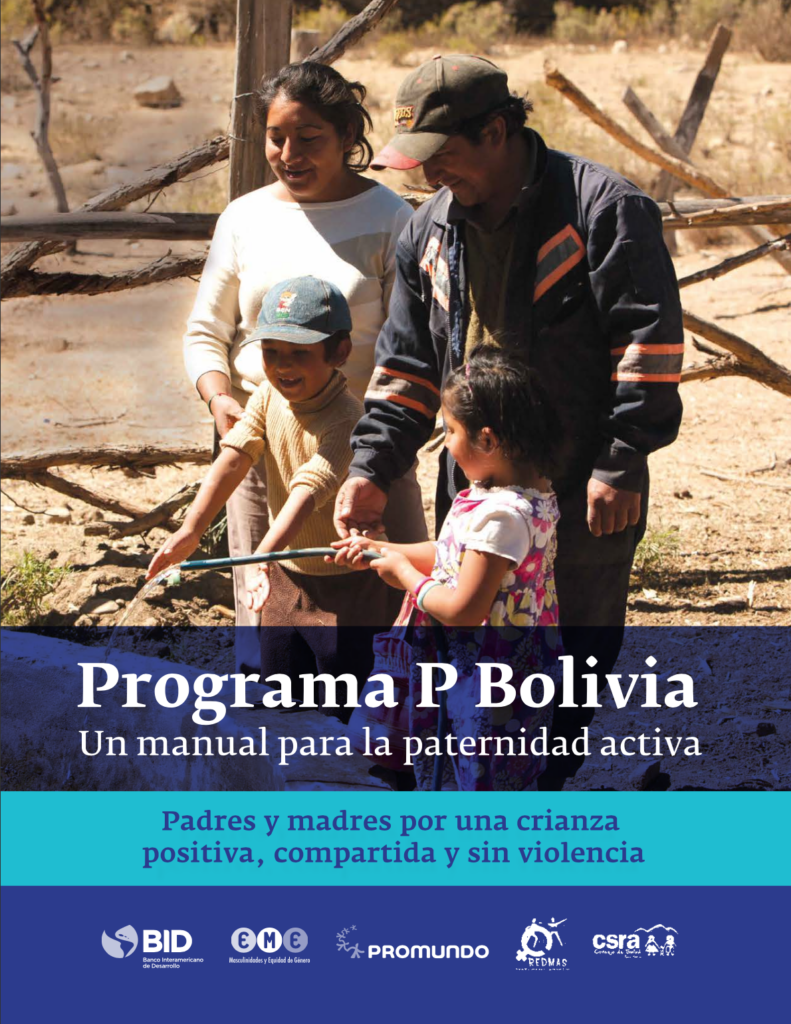Program P (named after padre, the word for father in Spanish) is a gender-transformative, father-focused intervention that encourages male caregivers and their partners to challenge restrictive gender norms, learn new skills around childrearing and couple communication, and adopt more equitable couple and parenting behaviors. By targeting men, primarily through the health sector, Program P engages fathers and their partners at a critical moment – usually during their partner’s pregnancies – when they are open to questioning their attitudes and adopting new behaviors.
Developed in 2013 in partnership with Puntos de Encuentro in Nicaragua, CulturaSalud in Chile, and the Brazilian Ministry of Health, and implemented in more than 20 countries, Program P was designed around a growing body of research, including results from the International Men and Gender Equality Survey (IMAGES), that highlights how men’s involved caregiving benefits mothers, prevents violence against women and children, and positively impacts family well-being.
Through participation in weekly group sessions over a period of 3-4 months Program P provides concrete strategies and activities to engage men in active fatherhood from prenatal care through delivery, childbirth, and their children’s early years. Hands-on activities and role-playing exercises with fathers and couples create a safe environment for discussing and challenging traditional gender norms and practicing new, positive behaviors. Along with group education for parents, Program P trainings are carried out for health and social sector staff in conjunction with community-level campaigns and local and national advocacy initiatives.
Equimundo, in partnership with Consejo de Salud Rural Andino (CSRA), began the process of building the foundations for scale-up in El Alto in March 2018. The local partner, CSRA, was chosen based on their previous experience in implementing Program P, in partnership with the Inter-American Development Bank (IDB) within the municipality of El Alto in 2016. Building on this experience, CSRA designed a workplan for scaling up Program P based upon the mechanisms, resources, and networks previously established during pilot implementation and evaluation of Program P. The selected strategy opted to increase the capacity of the health sector and a select number of Unidades Educativas, and provide technical support in their ability to institutionalize Program P within their own facilities.
Beginning in July 2018, CSRA and Equimundo conducted a series of Training of Trainers (TOTs) with CSRA’s local program managers and supervisors to go over any changes made to the Program P manual since its first implementation, refresh their skills on the process of implementing Program P, address any of the challenges they experienced during the previous iteration of Program P, and design action plans for how to integrate Program P within their assigned Health and Education sector institutions. Following these trainings, CSRA continued to work as Technical Advisors alongside the trained personnel during the validation process. CSRA also collected pre and post survey data, recorded attendance, and monitored fidelity to ensure quality of implementation.
Beginning in 2019, CSRA conducted outreach and established relationships with several new partners outside, including local military and police forces and private sector businesses. Overall, the implementation partners were able to reach over 600 participants mainly fathers of young children in El Alto.
